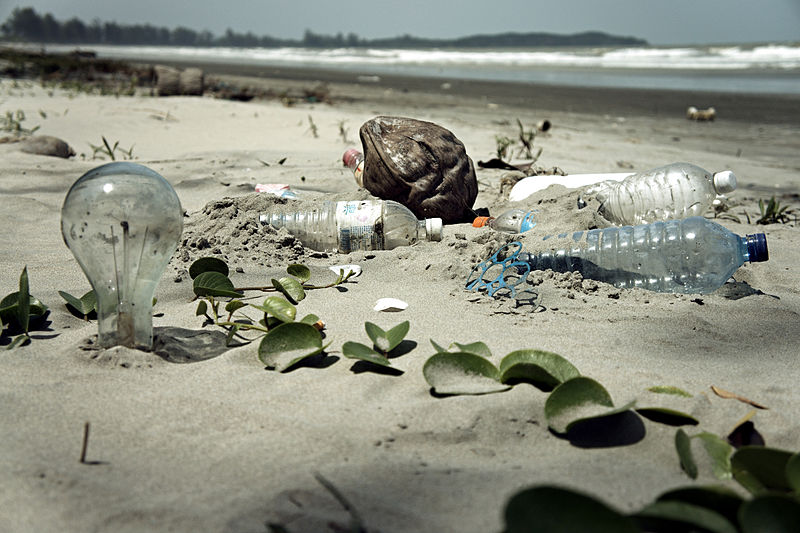
By ALEX XU
Staff Writer
Water bottles are ubiquitous. Look around and you’ll see Arrowhead, Dasani, Aquafina, Nestle Pure Life and Evian in backpacks and lunchboxes. They’re convenient and easy to use, and taste significantly better than school water fountains. Their convenience cannot be denied, which is why they have become so prevalent globally.
Plastic bottles also contribute heavily to microplastic pollution. Microplastics are tiny plastic particles that result from the breakdown of plastic objects, and in recent years have been the subject of intensive scientific scrutiny. According to the World Economic Forum, it is estimated that in 20 to 30 years, there will be more plastic in the ocean than fish. Preliminary studies on ocean life have shown that microplastics block gills of fish, preventing them from breathing. Thousands of marine animals die every year because of plastics, whether it be being strangled to death by fishing nets, having limbs amputated due to entrapment, starving because their stomachs are filled with plastics or choking on plastics that block their gills and throats.
When I visited Miami, I stopped by a turtle hospital; there, I found over a hundred green sea turtle adults and hatchlings, unable to survive in the wild due to factors outside their control. Most of the adults had swallowed so much plastic that they could not dive for food, akin to swallowing a flotation device. The younger ones suffered from deformities caused by plastic injuries, or were recovering from cancerous growths caused by ocean pollution. The environmental impact caused by plastics is immense and unlikely to go away anytime soon.
But what does this have to do with you? The harms of water bottles aren’t limited to wildlife. Many of our water bottles are branded Nestle Pure Life, but this water is anything but pure. In a recent study by Orb Media, researchers discovered that the average water bottle contains approximately twice as many microplastics compared to tap water. Microplastics by themselves are not particularly harmful, although some are small enough to pass through stomach lining and become part of the bloodstream. The problem arises from plastic’s tendency to absorb harmful, toxic chemicals such as BPA; studies by organizations such as the European Food Safety Authority have linked microplastics to increased risk of cancer, ADHD and autism. Sufficiently small plastics can interfere with liver function. Needless to say, as far as health benefits, plastic bottles offer little advantage over tap water.
Now, water bottles are often touted as recyclable, and having little environmental impact. However, not only do plastic bottles consistently fail to make it to recycling- some 50% of plastics in your recycling bin travel to the landfill –they also cause significant environmental harm even when recycled. Carbon emissions from recycling plants are still immense; in fact, for some types of materials, it can be more detrimental to recycle plastic than to send it to a landfill.
To solve this problem, and promote environmental awareness, our school cafeteria should stop giving out water bottles for free with meals.
Either stop selling bottles altogether, or charge a dollar no matter what you buy. The school should install more water bottle refill machines similar to the one near the 700s building and in the weight room throughout the school. The number on the 700s machine is it 20,000 plastic bottles saved, and is still counting upwards.
Every plastic bottle we save is a bottle that doesn’t travel into our oceans, and 120 microplastics not ingested. Everyone should do their part to preserve our environment, even if it is giving up temporary inconvenience.
The epitome of our convenience: water bottles
April 23, 2018
0
Donate to Sword & Shield
$180
$1000
Contributed
Our Goal
Your donation will support the student journalists of University High School. Your contribution will allow us to purchase equipment and cover our annual website hosting costs.
More to Discover













